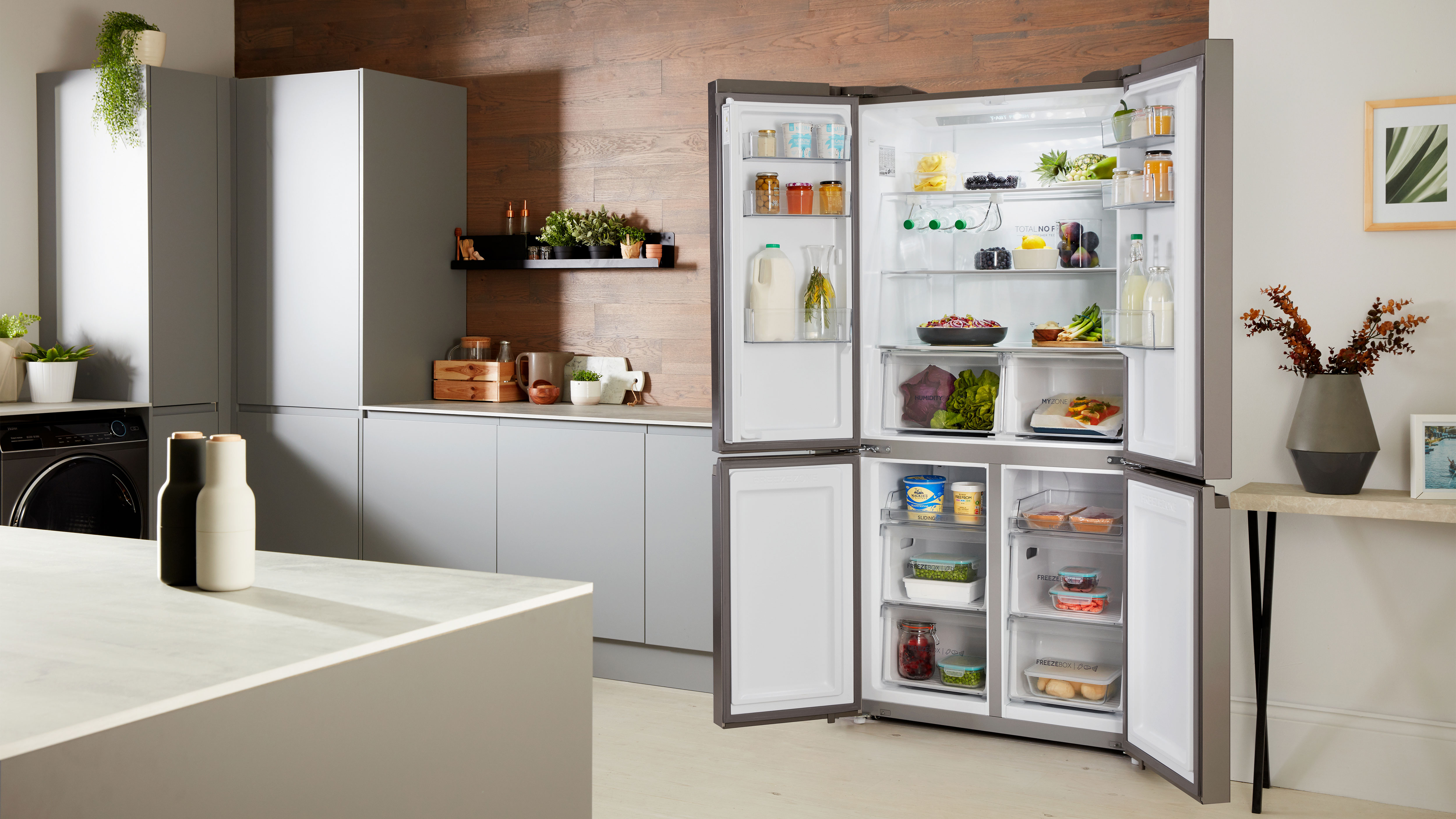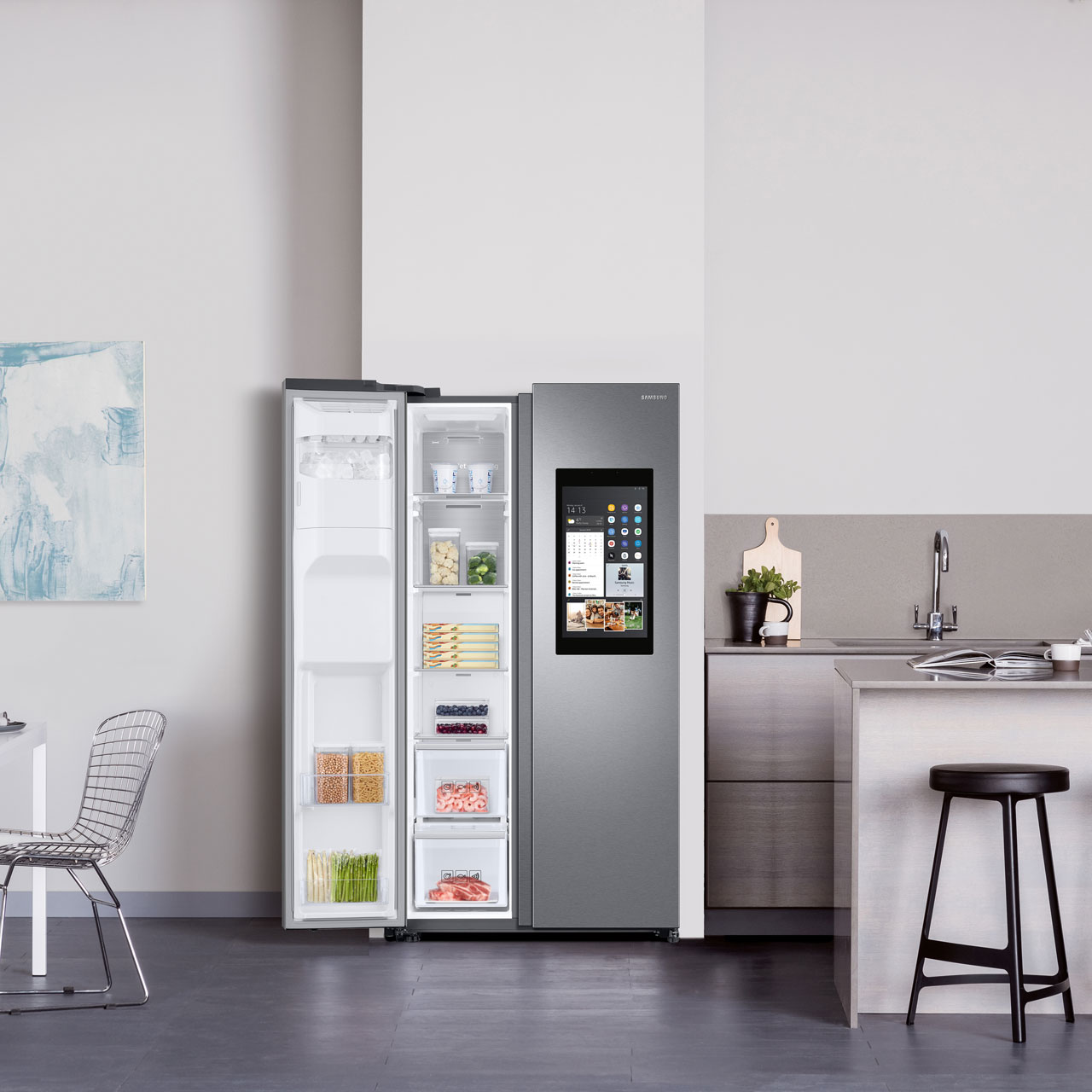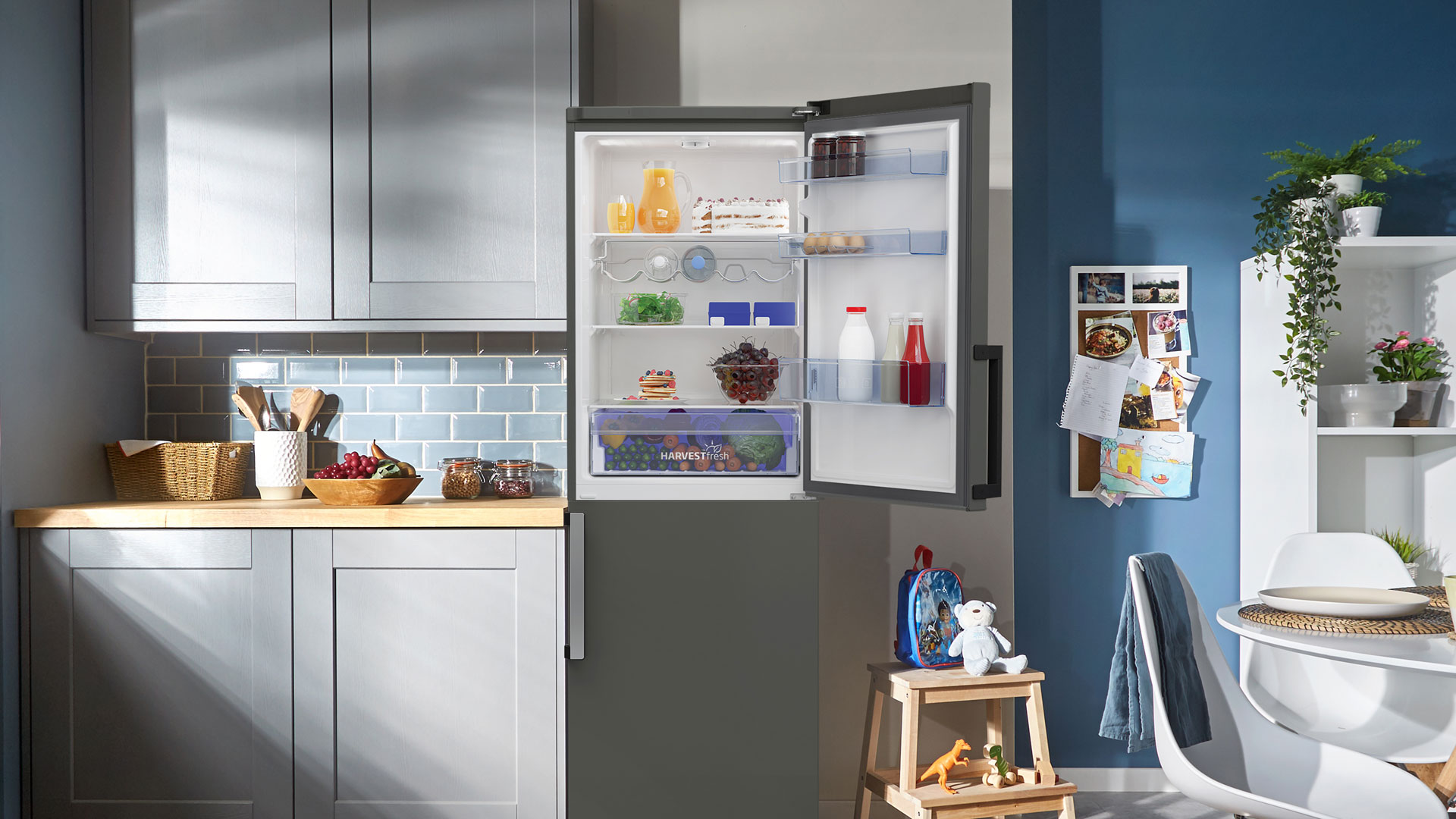How long does a refrigerator last? And the signs you need a replacement
We explain what kind of lifespan you can expect from your fridge and how to spot the signs that it is time to buy a new one


If you are wondering 'how long does a refrigerator last?' it will be for one of a few key reasons. Firstly, your existing fridge freezer might have been with you for a few years. From odd noises to signs of regular wear, you are perhaps concerned that it won't be working for much longer.
Or, maybe you have found what you think is the best refrigerator and while it looks amazing, the price might be more than you expected. Therefore, you want to know you will get plenty of years use from your investment.
Finally, it could be that your current fridge is not as efficient as it could be and you really want to replace it, but don't want to do so prematurely. Asking yourself how much longer you might get out of your existing fridge could help you weigh up whether to wait a bit, or pass it on to someone else while it has a few years left, allowing you to upgrade.
We have the answer to this frequently asked question below, so if your refrigerator's lifespan is on your mind, read on. Plus, we explain how to know when you do need a new fridge, as well as some tips on keeping your refrigerator in the best working order, for the longest time.
How long does a refrigerator last?
While most companies offer at least a one year warranty, of course it is a given that your new appliance will outlast this promise by some time. Trade associations and manufacturers themselves all say that a refrigerator should last at least 10 years.
Milo Cheney, Product Manager for refrigeration at Haier UK explains: 'The lifespan of a fridge depends on the quality of the components and technology it has built in. A lifespan of 10+ years is quite common for fridge freezer appliances.'
Of course anecdotally many of us will have heard of relatives, friends and neighbors with a much older appliance in their home, and you can generally expect better longevity if you pay a little bit more for high-quality engineering.
Get small space home decor ideas, celeb inspiration, DIY tips and more, straight to your inbox!
In fact, in 2013 the New York Post reported on an 85 year old model from General Electric that was still working and chilling food. While the technology has changed somewhat since this specific fridge was made between 1929 and 1931, at $300 it was a luxury purchase that would set the modern consumer back $4,225 today, proving you do get what you pay for.
However as Milo Cheney suggests, lifespan also depends on how the appliance is used: 'Having a smart fridge-freezer can optimize how long you have your fridge for, providing energy saving recommendations which can result in prolonged appliance lifespan.'
For example, many manufacturers include features like a door alarm if you leave your refrigerator open too long, or artificial intelligence tech like Haier’s that works with an app to personalise your temperature preferences depending on what you are storing. These work to reduce the load on the heat exchanger that keeps your refrigerator cool, meaning it should last much longer.
When should I replace my refrigerator?
Fridges rarely tend to just stop working, and instead lose efficiency over time, starting to feel warmer than they should be. This of course is a risk to food safety so if you are at all concerned that your fridge or freezer compartment is not getting cold enough, use a thermometer to check the temperature.
According to the US Food and Drug Administration a fridge should be no warmer than 40ºF/5ºC. However, many recommend aiming for around 37ºF/3ºC as an optimal temperature for most foods. The freezer compartment should be below 0ºF/-18ºC to effectively freeze and store food. If your refrigerator can't manage these temperatures, it is time to replace it as the cost of repair of a heat exchanger, or finding the right parts can outweigh buying new.
Poor energy efficiency is another good reason to replace an old appliance. If you think your refrigerator is wasting a lot of energy, it could be more cost effective (and better for the planet) to replace it with a newer model that saves power. Lots of appliance manufacturers and retailers will offer to take your old appliance away for recycling, too.
However, there are lots of parts that can be easily replaced on your refrigerator to extend its lifespan. Wear and tear to shelves and drawers can be overlooked or new parts bought where needed. Door seals can also impact on the efficiency of your fridge, but are generally quite easy to replace. These small – and often cosmetic –problems should be remedied where possible.

Is it worth repairing a 10 year old refrigerator?
A good quality fridge that is 10 years or older should still have a few good years in it. However if something does break, the answer to the question of whether repair is worth it depends on a few things:
- What is the problem with your refrigerator?
- Are spares easily and readily available?
- If you can't repair it yourself, what is the cost of an engineer to help you?
- How efficient is it to run?
If the issues are cosmetic or simple fixes that you can take on yourself, then you absolutely should attempt to repair your fridge. Fixing door seals should be in the skillset of most competent DIYers – many are simply held on by a couple of screws. New storage bins and shelves can be bought online (try searching eBay with your refrigerator's serial number for spares).
Fixing a broken heat exchanger or refrigerator compressor is trickier. If you suspect this is broken, take a few steps to solve the problem before rushing to replace your the whole appliance. First, check your fridge is not overheating. Not allowing adequate ventilation around the back of the refrigerator is a common problem that causes the fan to cut out.
If this doesn't help, you may need an engineer to diagnose the issue and they could need to replace the fan, start capacitor or the whole compressor. Depending on call out chargers for laborers in your area, it is usually worth getting somebody in to find out what the problem is and how much repair will cost. If repair is going to cost more than replacement, this is an easy decision to make.
And finally, if the fridge is costing a lot to run, when something breaks it could be a good time to upgrade to a more efficient model with lots of desirable new features.

How can I make sure my fridge lasts longer?
The best thing you can do to make your refrigerator last longer is make sure you help it to be as efficient as possible. Freezers work best when they are well packed, but fridges need plenty or air circulation – keep a tidy fridge that is not jammed with food, but make the most of your freezer space.
Next is a simple one. Minimize the length of time the door is open. Every time you open the door, your refrigerator – even the best under counter fridge – needs to work a little harder to get back down to the right temperature. Over time this takes its toll on the heat exchanger. Try and get everything you need out in one go – and do it quickly. Also, look for tech that helps you optimize the temperature effectively. Good temperature zoning in a fridge can mean it uses less power.
Unless you have a frost-free model (which we highly recommend), you will need to defrost the freezer every so often too. Again, this aids efficiency as well as preventing ice build up that takes up valuable freezer space.
Lastly make sure you know how to clean your fridge properly. Give it a regular wipe throughout, not just for good hygiene, but to prevent blockages to any vents too. That means vacuuming the back of the fridge every so often to stop dust from interfering with the fan.
- Need a new refrigerator, but on a tight budget? Buy the best you can afford thanks to these fridge freezer sales

Lindsey is Editor of Realhomes.com and Editor in Chief for Home Ecommerce at Future. She is here to give you aspirational, yet attainable ideas for your home and works with her team to help you get the best buys, too. She has written about homes and interiors for the best part of a decade for brands including Homes & Gardens, Ideal Home and Gardeningetc and isn't afraid to take the inspiration she finds at work into her own space – a Victorian terrace which she has been (slowly) remodelling for the last eight years. She is happiest sipping a cup of tea with a cat on her lap (if only she had a cat).